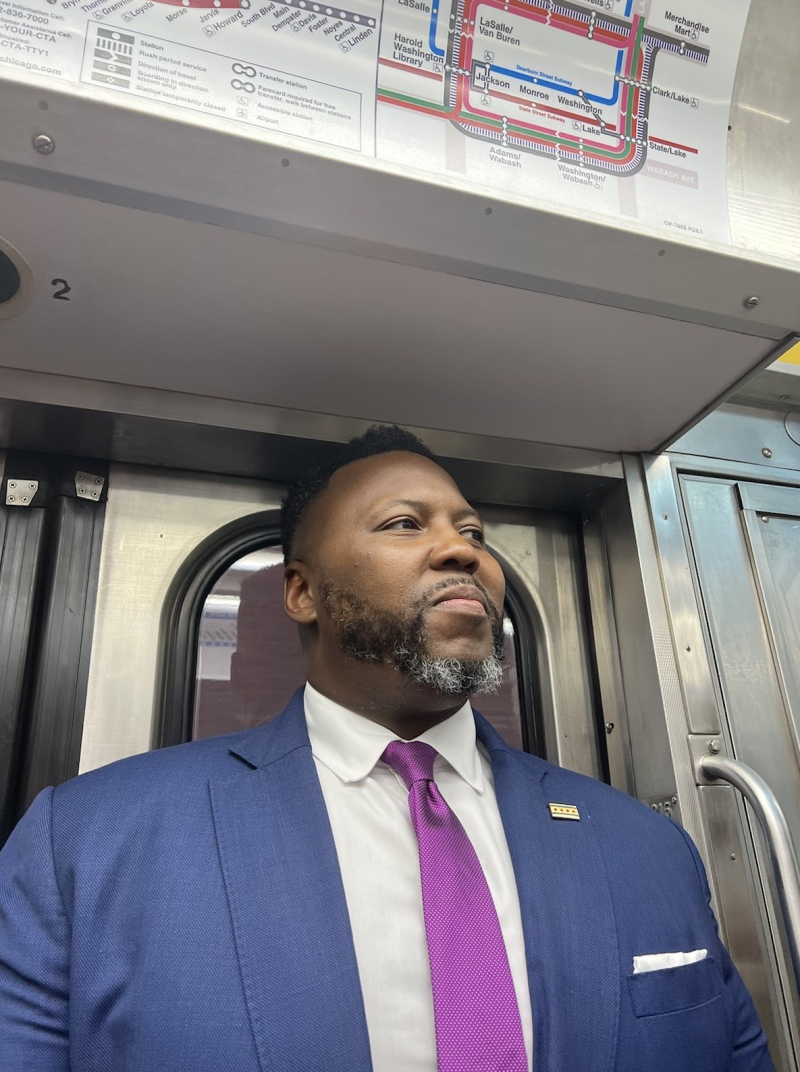
Update 10/22/23, 12 PM: While the new bill requires CTA and Pace to purchase only electric buses starting July 2026, it also includes this exception:
[The legislation] "Provides that, after July 1, 2026 (rather than January 1, 2026), a Service Board may not enter into a new contract to purchase a bus that is not a zero-emission bus for the purpose of the Service Board's transit bus fleet. Provides that a Service Board shall not be deemed to be in violation of the provisions when failure to comply is due to: (1) the unavailability of zero-emission buses from a manufacturer or funding to purchase zero-emission buses; (2) the lack of necessary charging, fueling, or storage facilities or funding to procure charging, fueling, or storage facilities; or (3) the inability of a third party to enter into a contractual or commercial relationship with a Service Board that is necessary to carry out the purposes of the provisions."
"Basically, if the electric vehicle market is a broken, or [a service provider] doesn't get its act together on supporting infrastructure, it has an out," explained Streetsblog contributor Richard Day. "I think that's a good thing. Otherwise [the service providers] might be unable to buy buses or be forced to wildly overpay."
State Representative Kam Buckner’s (D-26th) latest bill on public transportation, HB1342-Transit Riding Privileges/Fare or the 2023 Transit Omnibus Bill, has recently been signed by Governor JB Pritzker. Buckner said in a statement the bill passage wouldn’t have been possible without the support of local transit advocates organizations and colleagues like bill cosponsor State Senator Ram Villivalam (D-8th.)
“The work of Sen. Villivalam was critical in ensuring this got through the Senate and to the Governor’s desk," Buckner said in a statement. "He is a great partner in the transit legislation space. As Chair of the Senate Transportation Committee he has done invaluable work on what has been one of the most robust transit agendas that Illinois has seen in recent history. It’s also important to note that [cosponsor] Rep. Eva Dina Delgado (D-3rd) played a crucial role in this work as well."
There are four main components to the bill. The first has the goal of prioritizing safety on public transportation by allowing transit agencies to suspend riders who have committed crimes like assault, sexual assault, and battery.
The second component of the bill is helping domestic violence survivors through the creation of the Domestic Violence and Sexual Assault RTA Public Transportation Assistance Program. “The work we did here is an example of listening to the people on the ground working with survivors every day and asking them what they needed,” Buckner stated. "The program will allow survivors to get the resources they need by giving domestic service providers a pre-loaded fare card."
The third component is investing in young people by expanding free and reduced fares for youth traveling to and from work or attending career-oriented programs. This program is available to people aged 12 to 24.
The fourth component seeks to put the city of Chicago back on track to meeting our climate goals. The bill tries to do that by requiring the service boards to only purchase to buy zero-emissions buses starting in July 2026.
Last week, @GovPritzker signed HB1342 into law; a bill that I was the lead House sponsor on and @senvillivalam lead on in the Senate.
— Rep.Kam Buckner ✶ ✶ ✶ ✶ (@RepKamBuckner) August 2, 2023
This Transit omnibus makes a number of reforms that begin to put us in the right direction to improve our public transportation systems.
In a Twitter thread, Buckner highlighted other goals the legislation tries to accomplish. He noted that the Regional Transportation Authority (which oversees local transit funding), CTA, Metra, and Pace will have to make data available on reliability, safety, staffing levels, schedules, delivery of service, and overall system safety. It will extend COVID-era relief from the 50 percent farebox recovery ratio, which requires systems to pay for half of operating costs through fares and other revenue sources like advertising, through 2025. And by 2024, a report to the General Assembly on free/reduced fare programs and their effectiveness will be due.

“Commuters Take Action (CTAction) welcome the passage of a bill that's aimed to keep our transit systems running well," said Fabio Göttlicher, cofounder of the grassroots transit advocacy group. "Perhaps most importantly, the bill grants relief from the state-mandated 50 percent farebox recovery ratio for another two years. This addresses the most pressing fiscal issues and will ensure that our transit agencies don't have to make further service cuts due to financial pressure."
Commuters Take Action also applauds the new requirement for transit agencies to report their vital metrics. “For the past three years, the CTA has been allowed to lie about service levels without any consequences – accountability is key.” He said CTAction also welcome subsidizing transit for domestic abuse survivors since “this will help make people's livelihoods easier in what may be the most difficult part of their lives.”
However, Göttlicher said there are some aspects of the new bill Commuters Take Action isn't so thrilled about. For example, the group hopes to permanently change the farebox recovery mandate to “a level under which our transit system isn't chronically underfunded.” They also believe that while violent crime on transit is a problem that must be addressed, banning people from using buses and trains will be “near impossible” and will be a barrier to mobility for those who are banned.
What’s next for Buckner? He says he’s going to continue his work on ensuring that our region has the best mass transit system in the U.S. through the use of “frequent, fast, safe, accessible, and affordable service, respecting the dignity of transit employees and riders alike, and leading, but this is a step in the right direction.”
CTAction also has a few thoughts on what Buckner should focus on next. “We are thankful for Rep. Buckner's continued focus on improving transit. As mentioned earlier, the transit legislature in Illinois will need to be wholly redesigned to ensure adequate funding for a thriving transit system. The existing 50 percent farebox recovery ratio requirement never worked too well, and is not financially sustainable in a post-COVID world. Additionally, we'd like to see Rep. Buckner working together with the governor to ensure more qualified members are appointed to the Chicago Transit Board – ones who have transit expertise and regularly use the system.”
Read more about the legislation on the Illinois General Assembly website.

Did you appreciate this post? Please consider making a tax-deductible donation.




